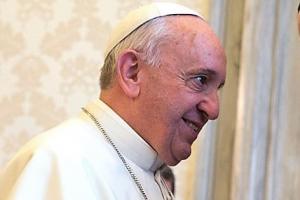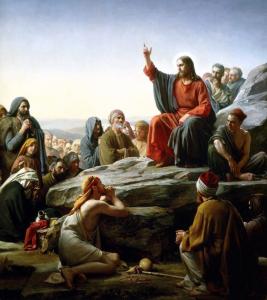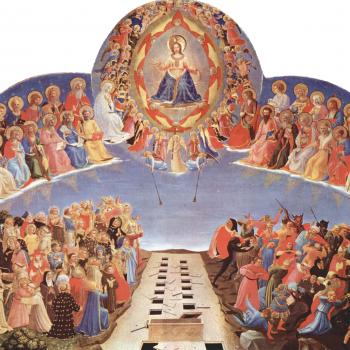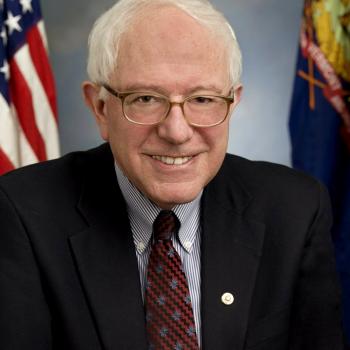Pope Francis has offered us a profound reflection on holiness, and its connection to living out the Beatitudes in his latest Apostolic Exhortation, Gaudete et exsultate. [1] Unfortunately, the grandeur of the whole is likely to be swallowed up in the controversy over one section, and its pertinence to an ongoing dispute in American politics. Not that this is a pope who shuns controversy in the interests of proclaiming the Gospel. But there are indications that there are political partisans prepared to weaponize this one paragraph of the entire exhortation, leaving future generations to reap the full benefit of this religious masterpiece.
 It will behoove us, then, to study the paragraph for ourselves in order to be inoculated against any misleading rhetoric that is certain to follow. The pope says,
It will behoove us, then, to study the paragraph for ourselves in order to be inoculated against any misleading rhetoric that is certain to follow. The pope says,
“The other harmful ideological error is found in those who find suspect the social engagement of others, seeing it as superficial, worldly, secular, materialist, communist or populist. Or they relativize it, as if there are other more important matters, or the only thing that counts is one particular ethical issue or cause that they themselves defend. Our defence of the innocent unborn, for example, needs to be clear, firm and passionate, for at stake is the dignity of a human life, which is always sacred and demands love for each person, regardless of his or her stage of development. Equally sacred, however, are the lives of the poor, those already born, the destitute, the abandoned and the underprivileged, the vulnerable infirm and elderly exposed to covert euthanasia, the victims of human trafficking, new forms of slavery, and every form of rejection. We cannot uphold an ideal of holiness that would ignore injustice in a world where some revel, spend with abandon and live only for the latest consumer goods, even as others look on from afar, living their entire lives in abject poverty.”
In saner times this would be uncontroversial. But we do not live in a sane time. Rather, we live in a time where the unborn and the poor are tools of politicians. The polemics to follow can be anticipated.
One side will object that Pope Francis has downgraded the importance of unborn human lives. This, it will be said, marks such a departure from traditional Catholic doctrine that the Holy Father has now manifested his heretical tendencies for all to see; and that he, therefore, need not be listened to when he speaks on behalf of the world’s afflicted. The other side will say that the pope has let it be known that abortion is only one issue among many such that it can be discarded in favor of other priorities. Neither of these readings can be justified.
 The pope has not downgraded the seriousness of abortion. On the contrary, he insists that we be firm and passionate in our defense of the unborn. But he is also pointing out that other human lives are just as sacred, also requiring our serious concern. Moreover, he is by no means identifying any human issue as discardable. He is not saying that one human life issue is more important than the other, that is, he is not saying that one human life is more important than another. Quite the contrary, he is saying that all human life is sacred.
The pope has not downgraded the seriousness of abortion. On the contrary, he insists that we be firm and passionate in our defense of the unborn. But he is also pointing out that other human lives are just as sacred, also requiring our serious concern. Moreover, he is by no means identifying any human issue as discardable. He is not saying that one human life issue is more important than the other, that is, he is not saying that one human life is more important than another. Quite the contrary, he is saying that all human life is sacred.
This message should be troubling to the inhabitants of the entire political spectrum in American politics. Many Catholics in the United States have steeled their consciences against the Faustian bargain they are called upon make with the two-party system. But Pope Francis is calling upon us to tear that contract in half.
It is too easy for us to acquiesce to the evils that our party promotes in order to obtain an advantage regarding the issue that is at the forefront of our concerns. Instead, we are called upon to be the “salt of the earth,” and the “light of the world.” Being Catholics, we must move the political parties we belong to in the direction of Catholic social teaching, rather than letting the political parties transform us.
In short, the answer is not either/or, but both.
That is, in part, what the Holy Father is saying.
The icon of St. Joseph the Worker is by Daniel Nichols.











